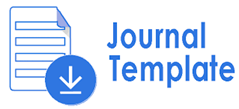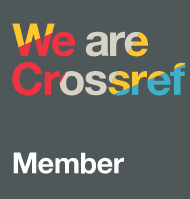Project-Based Learning Implementation in a Participative Planning Course: Strategies, Outcomes, and Challenges
Abstract
Keywords
Full Text:
PDFReferences
Ad’hiya, E., Haryani, M. E., Edi, R., & W, K. A. (2023). Preliminary Study on the Development of Project Based Learning Inorganic Chemistry Practical Instructions. IJCER (International Journal of Chemistry Education Research), 7(1), 39–43. https://doi.org/10.20885/ijcer.vol7.iss1.art7
Ali, S., Sajid, M., Ayaz, Y., & Asgher, U. (2021). A Methodology for Integrating Project Based Learning Outcomes and Attributes via Questionnaire. In Advances in {Neuroergonomics} and {Cognitive} {Engineering} (pp. 369–374). Springer International Publishing. https://doi.org/10.1007/978-3-030-51041-1_49
Anazifa, R. D., & Djukri, D. (2017). Project- Based Learning and Problem-Based Learning: Are They Effective to Improve Student’s Thinking Skills? Jurnal Pendidikan IPA Indonesia, 6(2), 346. https://doi.org/10.15294/jpii.v6i2.11100
Anugrahwanto, R. B., & Nurhayati, S. (2020). Implementation of Experiential Learning Approach To the Training of Character Development of Civil Servants in Ministry of Transportation Environment. Empowerment : Jurnal Ilmiah Program Studi Pendidikan Luar Sekolah, 9(2), 254–261. https://doi.org/https://doi.org/10.22460/empowerment.v9i2p254-261.1896
Arianto, F. (2021). The Effect of Training with Blended Project-based Learning on The Lecturer’s Competence in Developing Teaching Materials. International Journal of Social Science and Human Research, 04(12). https://doi.org/10.47191/ijsshr/v4-i12-20
Ashfahani, A., Haryono, H., & Kustiono, K. (2020). The Effectiveness of Project Based Learning and Discovery Learning with Modul to Improve Learning Outcome for AutoCAD Subject. Innovative Journal of Curriculum and Educational Technology, 9(2), 72–77. https://doi.org/10.15294/ijcet.v9i2.39460
Ashiq, K. (2022). Importance of Project-based learning (PBL) for Pharmacy Education. Turkish Journal of Pharmaceutical Sciences, 0(0), 0–0. https://doi.org/10.4274/tjps.galenos.2022.69023
Basjaruddin, N. C., & Rakhman, E. (2016). Implementation of Project Based Learning in Mechatronic Lab Course at Bandung State Polytechnic. International Journal of Evaluation and Research in Education (IJERE), 5(4), 284. https://doi.org/10.11591/ijere.v5i4.5955
Bastola, G. K. (2021). Project-Based Learning (PBL) in Nepalese EFL Classroom. Dristikon a Multidisciplinary Journal. https://doi.org/10.3126/dristikon.v11i1.39133
Belwal, R., Belwal, S., Sufian, A. B., & Al Badi, A. (2020). Project-based learning (PBL): outcomes of students’ engagement in an external consultancy project in Oman. Education + Training, 63(3), 336–359. https://doi.org/10.1108/ET-01-2020-0006
Foski, M., Mrak, G., & Lamovsek, A. Z. (2017). Interdisciplinary approach to project based learning: Experience through student workshops. New Trends and Issues Proceedings on Humanities and Social Sciences, 5(5), 95–103.
García-Sampedro, M. (2018). Cultural Heritage as a Resource for English as an Additional Language Learner: An Out-of Class Approach. Linguistics and Literature Studies, 6(6), 307–311. https://doi.org/10.13189/lls.2018.060606
Hafeez, M. (2022). Challenges and research gap in project-based learning – A review. International Journal of New Trends in Social Sciences, 6(1), 01–14. https://doi.org/10.18844/ijss.v6i1.5633
Hikmawati, V. Y., & Suryaningsih, Y. (2020). Implementing blended-problem based learning through Google classroom in biology learning. JPBI (Jurnal Pendidikan Biologi Indonesia), 6(2), 217–224. https://doi.org/10.22219/jpbi.v6i2.12112
Huang, Y.-C., & Huang, H.-Y. C. (2019). A Case Study of Project-based English Learning Experience in a Simulated Business Context. English Language Teaching, 12(12), 12. https://doi.org/10.5539/elt.v12n12p12
Ilyas, A., & Saeed, M. (2021). Project-Based Learning in Teacher Education: Effect on Prospective Science Teachers’ Science Teaching Efficacy Beliefs. Pakistan Social Sciences Review, 5(II), 26–35. https://doi.org/10.35484/pssr.2021(5-ii)03
Kligyte, G., van der Bijl-Brouwer, M., Leslie, J., Key, T., Hooper, B., & Salazar, E. (2021). A Partnership Outcome Spaces framework for purposeful student–staff partnerships. Teaching in Higher Education, 1–19. https://doi.org/10.1080/13562517.2021.1940924
Knoblauch, C. (2022). Combining and Balancing Project-Based and Blended Learning in Education. International Journal of Advanced Corporate Learning (IJAC), 15(1), 35–44. https://doi.org/10.3991/ijac.v15i1.27135
Krajcik, J. S., & Shin, N. (2022). Project-Based Learning. In R. K. Sawyer (Ed.), The Cambridge Handbook of the Learning Sciences (3rd ed., pp. 72–92). Cambridge University Press. https://doi.org/DOI: 10.1017/9781108888295.006
Krsmanovic, M. (2021). Course Redesign: Implementing Project-Based Learning to Improve Students’ Self-Efficacy. Journal of the Scholarship of Teaching and Learning, 21(2), 93–106. https://doi.org/10.14434/josotl.v21i2.28723
McGuinness, C., & Fulton, C. (2019). Digital Literacy in Higher Education: A Case Study of Student Engagement with E-Tutorials Using Blended Learning. Journal of Information Technology Education: Innovations in Practice, 18, 001–028. https://doi.org/10.28945/4190
Muslimah, M., Ayuningtyas, V., & Nurhayati, S. (2023). Strengthening the Pancasila Student Profile through the Process of Learning Indonesian Traditional Dance Project in the Independent Curriculum. Jurnal Pendidikan Tambusai, 7(2), 3901–3910. https://jptam.org/index.php/jptam/article/view/6325%0Ahttps://jptam.org/index.php/jptam/article/download/6325/5275
Nurhayati, S. (2018). PENGEMBANGAN MODEL PELATIHAN DENGAN PENDEKATAN EXPERIENTIAL LEARNING UNTUK MENINGKATKAN KOMPETENSI ASESMEN PEMBELAJARAN BAGI PENDIDIK PAUD DI KOTA CIMAHI [Universitas Pendidikan Indonesia]. http://repository.upi.edu/35474/
Nurinayah, A. Y., Nurhayati, S., & Wulansuci, G. (2021). PENERAPAN PEMBELAJARAN STEAM MELALUI METODE PROYEK DALAM MENINGKATKAN KREATIVITAS ANAK USIA DINI DI TK PELITA. CERIA (Cerdas Energik …, 4(5), 504–511.
Nurmawati, Nurhayati, S., & Noor, A. H. (2021). IMPROVING VOCATIONAL HIGH SCHOOL ALUMNI COMPETITIVENESS. Empowerment : Jurnal Ilmiah Program Studi Pendidikan Luar Sekolah, 10(1), 160–167. http://e-journal.stkipsiliwangi.ac.id/index.php/empowerment/article/view/2724
Octaviani, T., Nurhayati, S., & Rohmalina. (2023). MENINGKATKAN LITERASI SAINS UNTUK ANAK USIA DINI MELALUI PEMBELAJARAN DARING DENGAN METODE EKSPERIMEN. CERIA (Cerdas Energik Responsif Inovatif Adaptif), 6(2).
Permata, I. M., Nanda, B. J., & Cory, S. (2022). Project-Based Learning: Enriching Students’ 21 st Century Skills. Proceedings of the 4th International Conference on Educational Development and Quality Assurance (ICED-QA 2021), 650(2001), 325–329. https://doi.org/10.2991/assehr.k.220303.058
Pohan, R. F., & Rambe, M. R. (2022). The Learning Outcomes’s Increasing Of Basic Engineering Mechanics Students Of Civil Engineering Study Program Through The Project Based Learning (PjBL) Model. International Journal Of Humanities Education and Social Sciences (IJHESS), 1(6). https://doi.org/10.55227/ijhess.v1i6.194
Shibani, A., & Buck, A. (2022). Designing Effective Work-Integrated Learning for Data Science Students: Considerations and Lessons Learned. ASCILITE Publications, e22135. https://doi.org/10.14742/apubs.2022.135
Tarigan, I. L., & Latief, M. (2022). Implementation of the Project-Based Learning (PjBL) Model in Bioactivity Courses to Improve Students’ Activities and Learning Outcomes. Gema Wiralodra, 13(1), 157–167. https://doi.org/10.31943/gemawiralodra.v13i1.218
Yang, D., Skelcher, S., & Gao, F. (2021). An investigation of teacher experiences in learning the project-based learning approach. Journal of Education and Learning (EduLearn), 15(4), 490–504. https://doi.org/10.11591/edulearn.v15i4.20302
Yuwono, I., & Rapisa, D. R. (2021). Pedagogical competency development of prospective special education teachers through project based learning models project. JPPI (Jurnal Penelitian Pendidikan Indonesia), 7(2), 357–363. https://doi.org/10.29210/020211258
DOI: https://doi.org/10.33373/chypend.v9i2.5660
Refbacks
- There are currently no refbacks.

This work is licensed under a Creative Commons Attribution-NonCommercial-ShareAlike 4.0 International License.
Copyright (c) 2018 Universitas Riau Kepulauan

Ciptaan disebarluaskan di bawah Lisensi Creative Commons Atribusi 4.0 Internasional.














